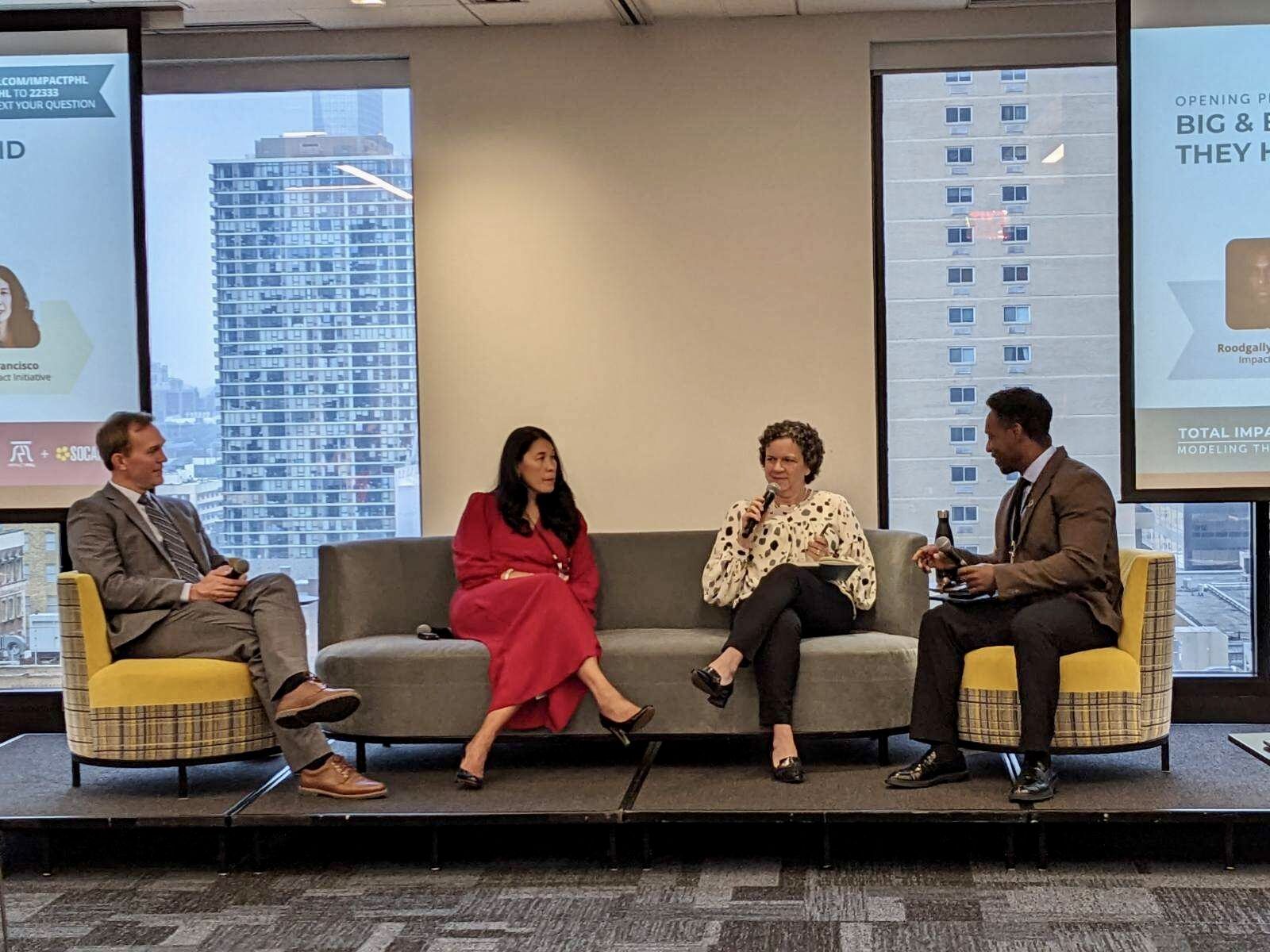Greetings, Agents of Impact!
Independence Day. When in the course of human events it becomes necessary to take a long summer holiday weekend, we ask your forbearance for the absence of your daily Brief. We’ll be back in your inbox on Monday, July 8.
– The ImpactAlpha team
Featured: Impact Voices
How do I convince my parents? Five guideposts for family offices shifting to impact. Once ‘Next Gens’ who want to shift more of their family assets into impact investing master the basics of sourcing, diligencing and structuring deals, they may face a tougher challenge: “How do I convince my parents?” In principle, family offices are ideally positioned. They can set their own investment targets, and they may be more nimble than institutional investors. Delivering on an impact-oriented strategy, however, may run up against the lack of clarity around impact investing products; specialized terminology and confusing jargon; the bewildering array of impact measurement frameworks; and high transaction and due diligence costs. Moreover, “reconciling generational perspectives on the role and purpose of investment and navigating the family politics around it can be tricky territory,” Rianta Capital’s Audrey Selian and Katherine Milligan, the former head of the Schwab Foundation for Social Entrepreneurship, write in a guest post on ImpactAlpha.
By 2021, high-net worth families will hold an estimated $70 trillion in assets. Already, one-third of high-net worth families and two-thirds of affluent millennials are actively engaged in impact investing strategies. For those making the transition, Selian and Milligan advocate passion, accountability and collaboration. Most importantly, they say: “Invest in leaders you trust, and build trust with your investees.” Social change leaders are conditioned to think small and hide problems lest investors get skittish. “This stems from their daily realities of operating on a shoestring budget, barely taking a salary while they struggle to keep the lights on and meet payroll until they close their funding round,” write the authors. “Social change on a scale that matters, and on a scale that matches the urgency and the magnitude of the problems we face, requires partners willing to stay in it for the long haul.”
Keep reading, “Five guideposts for family offices shifting to impact,” by Audrey Selian and Katherine Milligan on ImpactAlpha.
Dealflow: Follow the Money
D.light raises $18 million in debt for off-grid solar financing. D.light designs and manufactures small-scale solar products that have provided affordable electricity for nearly 100 million people. The company raised $18 million in debt to expand pay-as-you-go financing for customers in Africa, where less than 40% of people have access to electricity grids. “Significant amounts of capital are required to enable us to continue providing these financing plans for our customers as we grow,” said d.light’s Ned Tozun. D.light has raised nearly $200 million in debt, equity and grant funding since 2007, according to Crunchbase. The latest financing was backed by SunFunder, Developing World Markets, solar investor SIMA, and two funds of Swiss impact investor responsAbility. More.
MassChallenge brings gender balance to Texas’ startup scene. The new cohort in MassChallenge’s Texas accelerator has achieved a rare distinction for the tech industry: gender balance. More than half of the 74 startups in the latest group have a female founder. “We’re trying to make sure that female entrepreneurs are represented,” MassChallenge Texas’ Mike Millard told ImpactAlpha. Among the women-led startups at the Austin-based hub of the global “zero equity” accelerator network are San Diego-based Aliro, an online service that helps immigrants apply for U.S. citizenship, and Austin-based Guide Change, which helps older adults and their family members communicate better about finances. Founders will compete for up to $500,000 in cash prizes. Last year’s 84 startups have raised over $30 million, generated $20 million in revenue, and created 524 jobs. Next stop: Houston. “Houston is a great city,” says Millard. “It’s welcoming, it’s hungry and it’s ready for entrepreneurship.” Dig in.
SV Academy closes $9.5 million to teach tech skills at no cost to students. Bay Area-based SV Academy is one of a raft of tech training programs promising underskilled workers quick training and help in securing a good job and decent wage. But unlike other programs, SV Academy’s learners don’t pay anything. About 1,200 students a year are enrolled for 12 weeks of preparation for tech sales jobs. Their eventual employers cover the $10,000 in costs as a recruitment fee to SV Academy. “Until you get your job, we take on 100% of the risk that we will not recoup the time, money and effort we put into you,” the company tells prospects. SV Academy raised $9.5 million from Owl Ventures, Kapor Capital and Strada Education Network. Early backers Bloomberg, Rethink and Uprising re-upped in the round. Read on.
Signals: Ahead of the Curve
Wakanda’s on-screen lessons for ‘inclusion alpha.’ Black Panther’s story of Black technological and economic power resonates with the team at Impact America Fund (see, Agent of Impact Kesha Cash). The African-American-led venture capital firm invests in businesses using tech to advance economic agency in communities of color. Portfolio companies include supply-chain diversity platform ConnXus and hair-products platform Mayvenn. A case study, published in collaboration with Living Cities, lays out an investment framework, drawn from Black Panther that counters narratives of deficit and unlocks assets. Visiting Oakland at the end the film, King T’Challa of Wakanda, the fictional African utopia, finds cultural equals whose deficits result from extraction and underinvestment. T’Challa invests in STEM education and an outreach center to create jobs. The Black Panther story “shares with us a central belief that the seeds of a dynamic black future already exist within the minds of those among us—as long as, together, we are willing to step forward and author it,” writes Impact America Fund’s Stefanie Thomas. Wakanda’s lessons in “inclusion alpha”:
- Counter narratives. Founders from underserved communities may not match conventional images of entrepreneurs. Support founders with deep personal and professional connections to the problems they’re solving. Tap cultural capital for aptitudes, insights, resources and resourcefulness within communities.
- Add value. Don’t extract it. Back companies that move stakeholders toward self-determination and help them equitably recover from setbacks. Intentionally build an inclusive investment ecosystem. Reach out to diverse accelerators and seed funds. Invite diverse participants to the many tables you sit at. Learn from them.
- Share this post.
Agents of Impact: Follow the Talent
The Kapor Center is looking for a startup services director in Oakland… Omidyar Network is recruiting a fellow for exploration and future-sensing… Veris Wealth Partners seeks a wealth manager in its New York office… Convergence is hiring an administrative associate in Toronto… Resident Owned Communities is looking for a special projects manager in Concord… Minority Cannabis Business Association and Merida Capital Partners launch i2 Accelerator to back minority-owned businesses in the cannabis sector (see, “‘Inclusive cannabis’ investors apply a racial-equity lens to a high-flying industry”).
— July, 2019.











